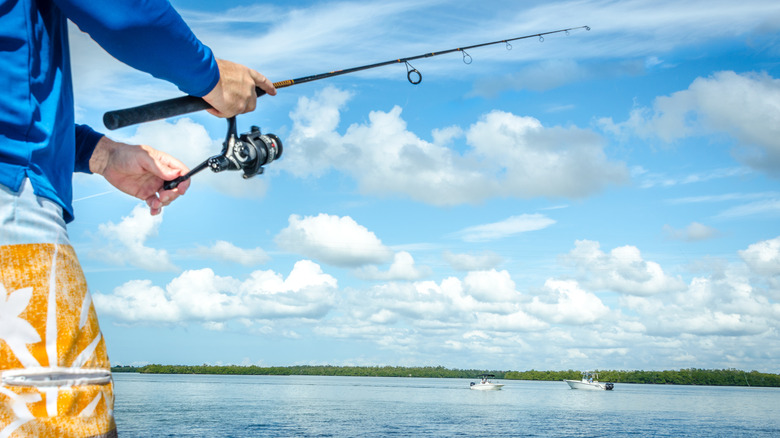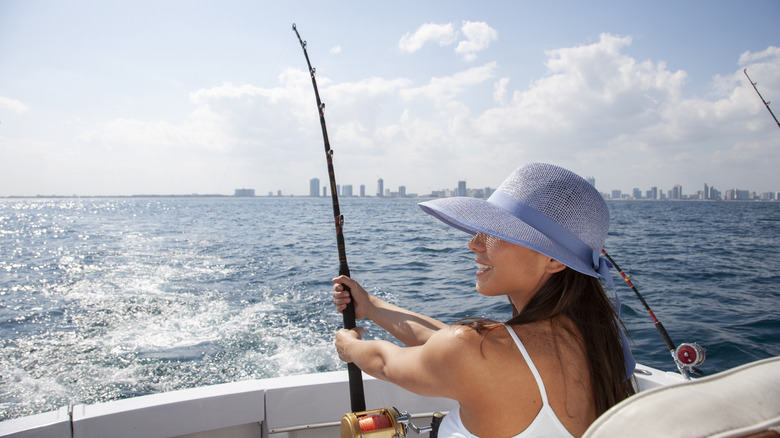The Best Way To Find A Wildlife-Friendly Florida Fishing Charter After Shocking Reports Of Animal Cruelty
In most cases, Florida Man tops a story or meme that goads guffaws, owing to a comically ridiculous situation that may or may not involve a gator. But sometimes it inspires horror — and ideally, incites action. In the Florida fishing world, this came after videos appeared showing a fisherman stabbing a hooked shark several times before releasing it. At the same time, a charter boat captain in Panama City received a 30-day sentence and $51,000 fine for deliberately poisoning 24 to 70 dolphins and shooting several more. Unfortunately, these are just two of too many stories of cruelty to marine life in Florida, and plenty more undoubtedly slip under the surface.
One of the best weapons against such animal abuse is the dollar, especially in a state where saltwater fishing accounts for $13.8 billion a year. With the Florida Friendly Fishing Guide certification program — launched in 2019 by the Institute of Food and Agricultural Sciences at the University of Florida, Sea Grant, and the Fish and Wildlife Conservation Commission — rod-and-reelers enthusiasts can wield it by engaging operators that respect the marine environment and embrace sustainable practices. Hiring these outfits also rewards positive behavior, which may motivate more operators to take part in the voluntary program.
Success is increasing options for eco- and ethics-minded fishing fans, too, with 139 currently certified throughout the state, including near Florida fishing cities with several of the most beautiful beaches in the world and Florida's longest fishing pier. You can find their names and contact information on the Florida Sea Grant website.
What it takes to get certified
To earn certification as a Florida Friendly Fishing Guide (FFFG), participants must complete an online course that covers a range of topics. These include fisheries management, catch-and-release techniques, marine ecology, environmental ethics, sustainable waste management, and fueling safely. To complete it takes about four hours, but doesn't need to be in a single sitting; participants can also fit 20 to 30-minute chunks into their schedules. While the course largely covers the basics of each topic, there's still much that can be learned by experienced operators. As Capt. Josh B notes on the certification homepage, "I enjoyed taking the course, and while I considered myself fairly knowledgeable about the topics, I definitely had a few misconceptions and learned quite a bit."
At $130, the course is relatively affordable, too. However, if the fee puts off some, especially operators with tight budgets but keen interest, scholarships for 50% off are available. Completing the course successfully brings a swag bag of goodies, but the real prize is the potential business boost certification brings.
Not only will it enhance the operator's appeal to eco- and ethics-minded customers, but it will also be seen by more people, thanks to listings in the FFFG directory and destination websites, a shout-out on Florida Sea Grant's social media accounts, and membership in the Facebook group. Over time, that will grow a healthier fishing community for generations to come. So, whether you're planning to hook marlin and bonefish in the Florida Keys' Sportfishing Capital of the World, or hook lunker bass on one of Florida's inland lakes, check for Florida Friendly Fishing Guides before you take your next charter.

